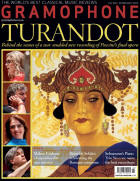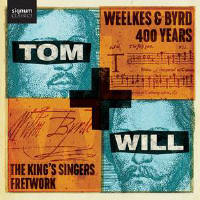Texte paru dans: / Appeared in: |
|
|
Outil de traduction |
|
|
The USP here lies in pairing Byrd with his anniversary-mate Thomas Weelkes, who also died in 1623, a measly 47 years to his credit compared to Byrd’s 80. Putting the two composers head to head requires a broad musical view, taking in madrigals (mostly Weelkes), consort songs (mostly Byrd), sacred anthems and music for viol consort – a ‘garden of musical delights’, as David Skinner’s notes put it, that also includes a substantial bonus in the form of two newly commissioned works from James MacMillan and Roderick Williams, musical homages and elegies on Byrd and Weelkes respectively. The spirit is domestic, as though a seriously sophisticated household just happened to get together to play through some favourites, and certain works (Weelkes’s What joy so true; Byrd’s Alack, when I look back) are arranged for voices and viols to embrace this. It’s a lovely pairing: Fretwork all rasp and twist and tremor, a consort tone of plunging, vertical depth, against the smooth blend and polished horizontal lines of The King’s Singers. We get both grit and gloss in the shared pieces – friction that brings a frisson to the gloom of Weelkes’s Say dear and a delicious rustic earthiness to Byrd’s Who made thee Hob. The dexterity and bright clarity of the voices shines in Weelkes’s Hark all ye lovely saints above (this is a group born for fa-la-la-ing) but something like Thule, the period of cosmography loses its strange bite when given the classy King’s Singers treatment, smoothing its chromatic oddities to an almost even surface. The new works are chunky affairs – no musical stocking-fillers here. MacMillan’s Ye sacred muses is a haunting series of exchanges between fretting, agitated viols and voices whose initial stoicism is gradually melted. A slow-moving, cantus firmus-like tread in the bass viol is the binding thread for episodic outpourings that convulse with sour-sweet emotion. Williams’s Death be not proud brings out the sardonic quality in Donne’s poem – less an elegy (though the use of silence calls attention to loss, absence) than a musical act of defiance. Treating the viols like a string quartet and the voices like the close-harmony group they are creates a playful collision of worlds, and the music roams from American-style motor rhythms via folk music to Renaissance polyphony before a ravishing close conjures a place where, at last, ‘Death shall be no more’. |
|




